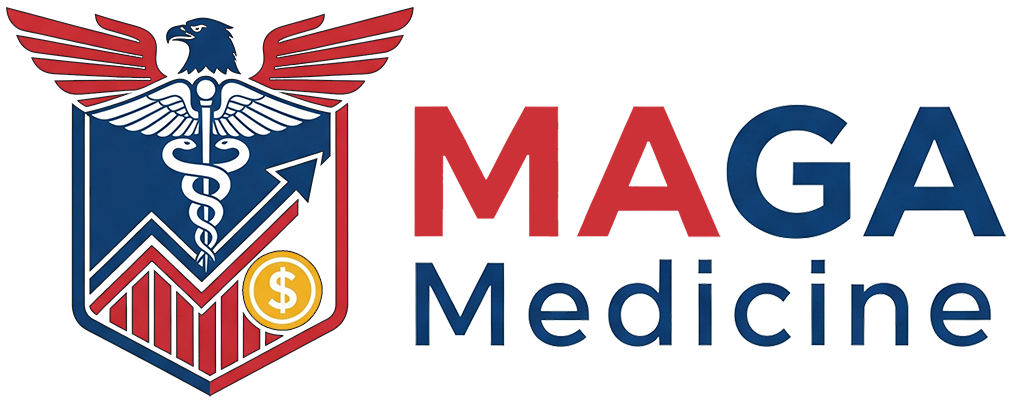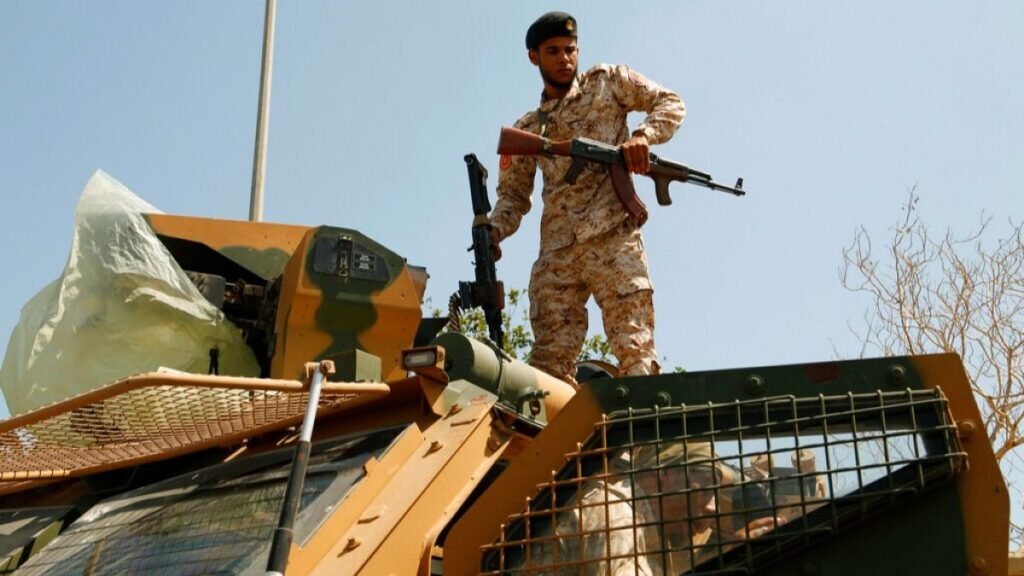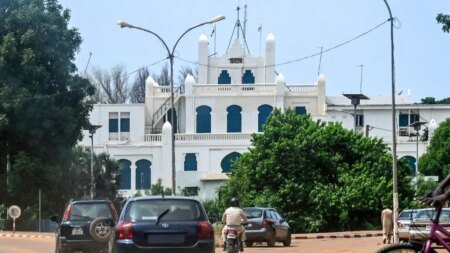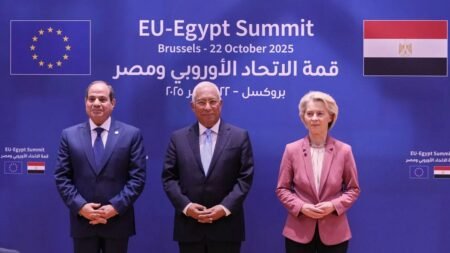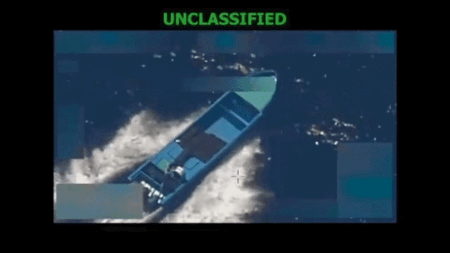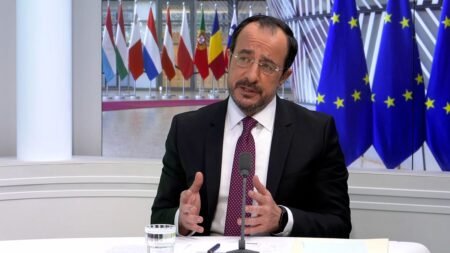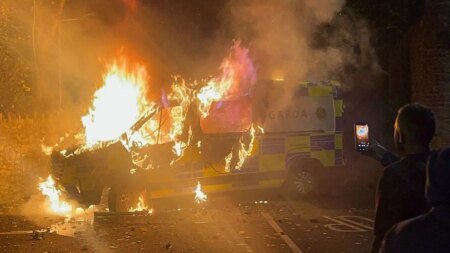Thirty-eight European Parliament lawmakers from four political groups wrote a letter to the European Commission urging an end to funding for all Libyan security forces.
The MEPs asked the Commission to condemn what they call the violent actions of the Libyan Coast Guard against humanitarian vessels in the Mediterranean, and to “immediately halt all forms of support — financial, technical, or operational — to the LCG, the (Directorate for Combating Illegal Migration) DCIM and any other Libyan entity.”
Following the ousting of dictator Muammar Gaddafi and the end of the civil war in 2020, Libya remains politically divided, with two entities controlling different parts of the country.
The internationally recognised Government of National Unity (GNU) is based in Tripoli, led by Prime Minister Abdul Hamid Dbeibah. GNU controls the west of the country.
In the east and south, control is held mainly by the Libyan Arab Armed Forces (LAAF) under the military command of General Khalifa Haftar and a rival administration known as the House of Representatives.
According to a European Commission spokesperson, last week’s dialogue between the EU and both sides in Libya was “open and constructive”.
Both GNU and Haftar’s representatives addressed the recent incidents and agreed that “respect for human rights must always come first in any cooperation,” the spokesperson said.
However, the situation at sea indicates an escalation of violence in encounters with the different factions in power in Libya today, according to the group of MEPs who penned the letter.
In recent years, different Libyan armed units have made multiple documented attacks towards migrant boats, rescue vessels and fishing boats in international waters.
In August, the crew of the NGO vessel Ocean Viking reportedly came under heavy fire for minutes from an EU-funded Libyan Coast Guard boat, under the control of the government in Tripoli.
A recent report from NGO Sea-Watch details 60 violent maritime incidents provoked by the Libyan Coast Guard and other Libyan actors.
This led to growing concerns by part of the Parliament about the role of the EU in financing the Libyan forces, who are supposed to fight against human smuggling and respect the human rights of migrants.
“This continued cooperation is a flagrant misuse of EU funds, runs contrary to the European acquis, and furthermore endangers the fragile Libyan peace process, increases instability at the EU’s maritime border, and undermines the EU’s credibility as a foreign policy actor”, the MEPs who belong to Socialists and democrats (S&D), Renew Europe, Greens/EFA, and The Left group, wrote in the letter seen by Euronews.
Since 2017, the Commission has been providing material, technical, and training support to Libyan authorities through various EU programmes. The main one is the Emergency Trust Fund for Africa (EUTF for Africa), providing a total of €465 million until 2021.
Assistance to the country continued under another programme — the NDICI–Global Europe instrument — for the period 2021-2027, allocating a total of €65 million with a focus on protection and border management. However, it is unclear how much of this money is effectively channelled to the Libyan Coast Guard.
European Commission President Ursula von der Leyen has announced an additional €675 million for North African countries, in a letter sent to EU heads of state ahead of the European summit on Thursday.
Funds with problems
Most of these funds have been labelled as controversial by civil society organisations and by some EU institutions themselves.
In September 2024, the European Court of Auditors published a report on how EUTF funds were spent, marking the first time an EU institution said that the 27-member bloc is not adequately addressing human rights risks.
The other funds under the so-called NDICI regulation specifically exclude from funding any activities that “may result in human rights violations in partner countries”. But the cash continues to flow despite documented abuses towards migrants.
A UN Independent Fact-Finding Mission to Libya of March 2023 found that some Libyan authorities that the EU supports were involved in gross human rights violations, including human trafficking, forced labour, starvation, sexual violence and torture.
The Commission has also been found guilty of maladministration by the EU Ombudsman for having refused to disclose assessments of its Libya projects.
Other requests contained in the MEP letter include the establishment of an EU-coordinated search-and-rescue mission in central Mediterranean, putting pressure on the Italian government to suspend its 2017 Memorandum of Understanding with Libya, and the call to the Commission not to engage with non-recognised entities such as forces under the control of Haftar, which has indeed happened over the past months.
A similar call from European civil society to stop financing the Libyan Coast Guard was recently dismissed by the Commission.
Euronews contacted the European Commission to confirm whether the letter had been received, and received a response but no confirmation at the time of publication.
In her own letter to the 27 EU member states, von der Leyen reaffirmed the EU’s commitment to engage with Libya and other North African countries to prevent departures from the southern coasts of the Mediterranean.
Read the full article here
